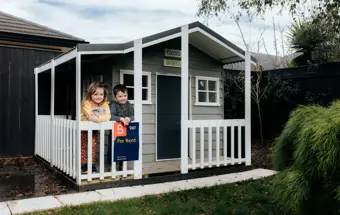Long-Term vs Short-Term Property Investment in New Zealand
Thursday, 2 October 2025

By continuing, you agree to our terms of use and privacy policy
Instructions on how to reset your password will be sent to the email below.
Your password reset link has been sent. Please check your inbox and follow the instructions provided.
Thursday, 2 October 2025

If you are considering investing in property, you need to weigh your options to determine which type of property suits your investment. In recent times, a debate has emerged between long-term residential rentals and short-term platforms like Airbnb. While short-term rentals promise high returns and flexibility, long-term investments remain the cornerstone of sustainable, long-term growth. However, you must navigate the complexities of the Residential Tenancies Act, which has become increasingly complex in recent years. That being said, all tenants deserve warm, dry, and healthy homes, and compliance with the legislation should not be overly burdensome.
In this blog, we look at the case for long-term residential rental investment.
Pros:
Stable Income Stream: Long-term rentals provide a consistent monthly income, mitigating the volatility associated with seasonal fluctuations in demand. This predictability is ideal for investors seeking passive income and financial stability.
Lower Management Burden: Unlike Airbnb, long-term rentals don’t require constant guest turnover, cleaning, or furnishing. Property managers can oversee tenancies with minimal disruption, allowing investors to scale portfolios more efficiently.
Favourable Tax Treatment: Investors can claim deductions for mortgage interest, rates, insurance, maintenance, and depreciation. Even if a property generates a cash flow deficit, these deductions can offset other income, thereby improving overall tax efficiency.
Capital Growth Potential: New Zealand’s property market has historically delivered strong, long-term capital gains. With a slowdown in the property market, there is now the potential for capital gain.
Regulatory Clarity: Long-term rentals are governed by the Residential Tenancies Act, offering clear guidelines for landlords and tenants. While compliance is required (Healthy Homes, rent review limits), it provides a structured framework that protects both parties.
Cons:
Lower Yields (Initially): Long-term rentals may not initially generate high cash flow, especially in high-value areas. However, over time, rental increases and mortgage reductions improve profitability.
Tenant Risk: Difficult tenants can pose significant challenges, but professional property management and thorough tenant vetting effectively mitigate this risk.
Changing Legislation: Different governments typically have differing ideologies regarding property investment. Changing Governments every election can lead to changes in how property is taxed and legislated.
For investors focused on building wealth, especially in a market like New Zealand where housing remains a fundamental need, long-term rentals offer a more reliable and manageable path.
The Short-Term Rental Temptation: Airbnb and Beyond
Pros:
Higher Income Potential: In tourist hotspots like Queenstown or Taupō, Airbnb can generate significantly more income per night than traditional rentals, especially during peak seasons.
Flexibility: Owners can use the property personally during off-peak times and adjust pricing dynamically based on demand.
Diversified Guest Base: Short-term rentals attract a diverse range of guests, thereby reducing reliance on a single tenant.
Cons:
High Operating Costs: Cleaning fees, furnishing, utilities, consumables, and platform commissions quickly erode profits. Many hosts underestimate these costs.
Income Volatility: Occupancy rates fluctuate seasonally. A well-performing summer may be followed by a quiet winter, making cash flow unpredictable.
Regulatory Complexity: Airbnb properties are not covered by the Residential Tenancies Act. Instead, they fall under short-term accommodation rules, which vary from council to council. For example, Auckland and Queenstown require resource consent for rentals exceeding 28–90 days annually.
Tax Implications: Airbnb income is taxable. If annual turnover exceeds NZ$60,000, hosts must register for GST and charge it on rental income. Mixed-use asset rules may also apply if the property is used for both personal and commercial purposes.
Time-Intensive Management: Hosting requires constant attention, guest communication, cleaning coordination, and reputation management. Many investors end up outsourcing to property managers, which further reduces their margins.
While Airbnb may offer short bursts of high income, long-term residential investment provides:
For investors focused on building wealth, especially in a market like New Zealand where housing remains a fundamental need, long-term rentals offer a more reliable and manageable path.

Want to know more about Property Brokers' superior property management service? Check out our FREE guide here!

Read more
From the top of the North through to the deep South, our salespeople are renowned for providing exceptional service because our clients deserve nothing less.
Managing thousands of rental properties throughout provincial New Zealand, our award-winning team saves you time and money, so you can make the most of yours.
With a team of over 850 strong in more than 88 locations throughout provincial New Zealand, a friendly Property Brokers branch is likely to never be too far from where you are.